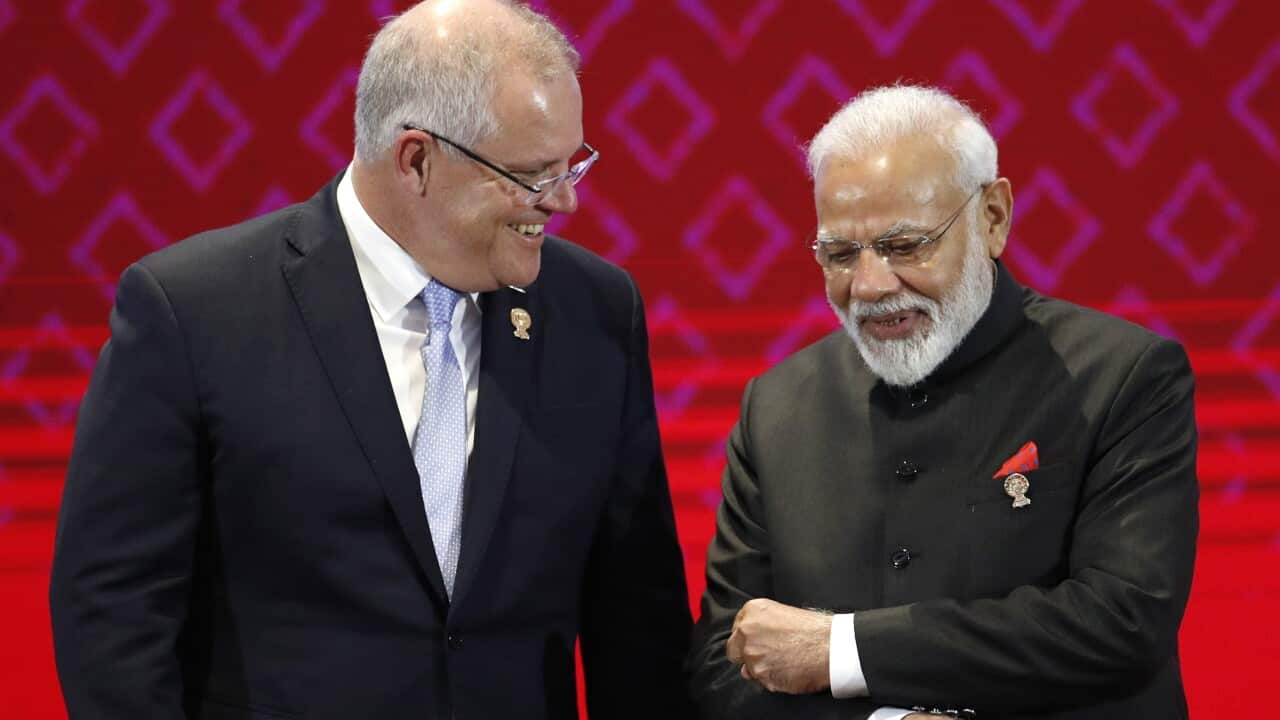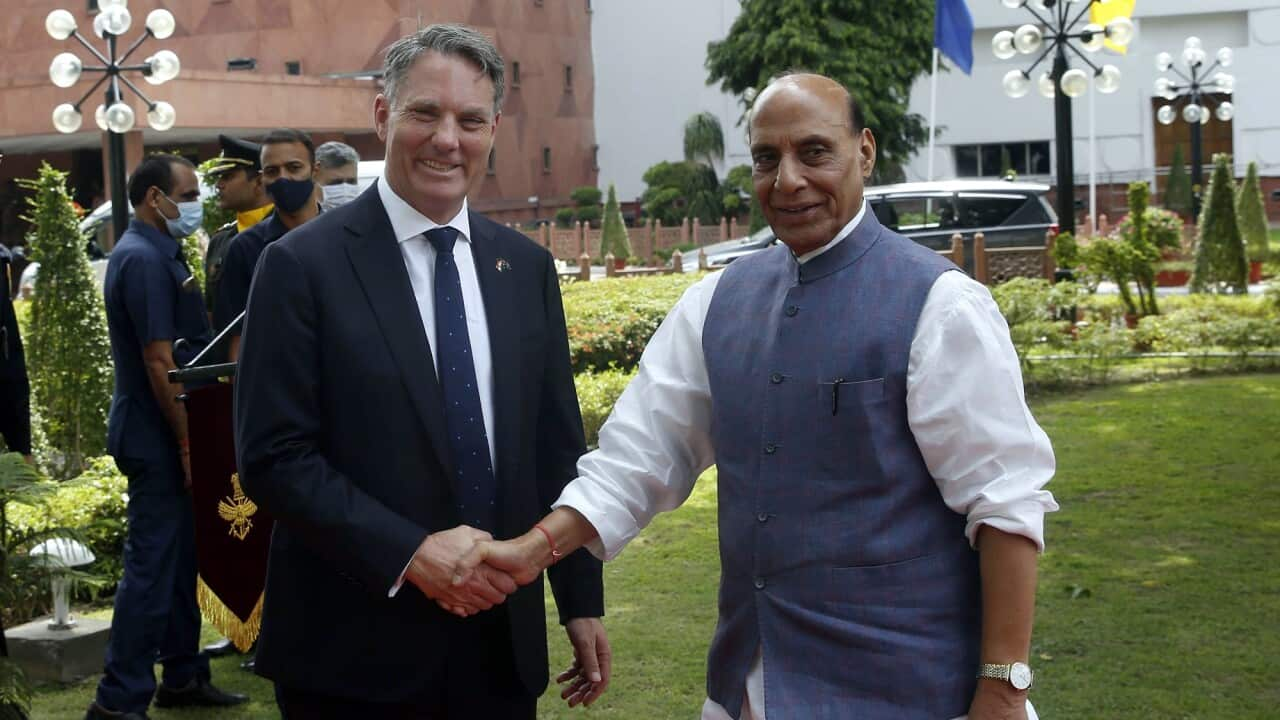KEY POINTS
- Tariffs on over 85 per cent of Australian products have now been eliminated.
- The changes are part of the Australia-India free trade deal that has now come into effect.
- Australian products that benefit include wool, fresh rock lobsters, barley and cosmetics.
Australian exporters will have trade taxes cut twice this week as the Indian free trade agreement comes into effect.
When do the tariff cuts kick in?
The first round of tariff cuts takes place on Thursday, with a second tranche coming in on Sunday.
It gives Australian businesses greater access to India's 1.4 billion people-strong market just ahead of the new year.
More than 85 per cent of exports to India - including wool, meat, barley, lobsters, cosmetics and critical minerals - had tariffs entirely cut from Thursday.
Tariffs on a further five per cent of goods will be tapered down to zero over the next six years.
The removal of tariffs opens up commercial possibilities "for up to $14.8 billion worth of Australia’s current merchandise trade destined for India each year," Australia's Department of Foreign Affairs and Trade said.
How will Australia's tourism and education sectors be affected?
Australian tourism is also set for a boost with 1,000 work and holiday program places available to young Indian travellers.
Australia's independent skills training and higher education sectors have welcomed the agreement, saying it presents great opportunities for businesses in the sector by boosting access.
The Independent Tertiary Education Council Australia says increased access to India's education market will help develop collaborative relationships.
"There are strong economic and societal benefits for Australia through improved access to the adult Indian education sector," chief executive Troy Williams said.
The council's 2022 state of the sector report found Indian students make up the largest number of enrolments for independent higher education providers, with more than 18,000 students.
Mr Williams said the boost to the sector would help with the recovery from the COVID-19 downturn.
Indian businesses also benefit under the deal, with duty-free access for Indian exporters, including jewellery makers.
What comes next?
Trade Minister Don Farrell says the two nations are natural trading partners.
"This agreement will unlock the enormous potential in our trading relationship," he said.
He said the agreement would help diversify exports and strengthen the bilateral relationship.
Mr Farrell said the impacts are immediate.
"From today, tariffs on premium wine to India are slashed by half from 150 per cent to 75 per cent, dropping to 70 per cent in a few days' time on 1 January 2023, and will phase down to 25 per cent over nine years," he said.
The federal government says the "ground-breaking" deal will save Australian exporters around $2 billion a year in tariffs. Consumers and business are expected to save around $500 million in tariffs on imports of finished goods, and inputs to our manufacturing sector.
Australia's Indian community is the country's second largest and fastest-growing overseas-born group. In the 2021 Census, 976,000 people reported Indian heritage. Punjabi is Australia's fastest-growing language and Hindi is among the top 10 languages used in Australian homes.
Both countries say work is continuing to build on the free trade deal - called the Australia-India Economic Cooperation and Trade Agreement - with negotiations on a Comprehensive Economic Cooperation Agreement.
A free trade agreement with Britain has also been ratified by Australia and is awaiting the UK's parliamentary process to come into effect in early 2023.











